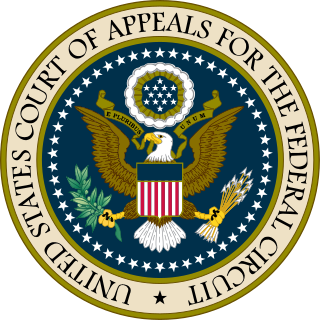Related Research Articles

A court-martial or court martial is a military court or a trial conducted in such a court. A court-martial is empowered to determine the guilt of members of the armed forces subject to military law, and, if the defendant is found guilty, to decide upon punishment. In addition, courts-martial may be used to try prisoners of war for war crimes. The Geneva Conventions require that POWs who are on trial for war crimes be subject to the same procedures as would be the holding military's own forces. Finally, courts-martial can be convened for other purposes, such as dealing with violations of martial law, and can involve civilian defendants.

The Family Court of Australia was a superior Australian federal court of record which deals with family law matters, such as divorce applications, parenting disputes, and the division of property when a couple separate. Together with the Federal Circuit Court of Australia, it covered family law matters in all states and territories of Australia except for Western Australia, which has a separate Family Court. Its core function was to determine cases with the most complex law, facts and parties, to cover specialised areas in family law, and to provide national coverage as the national appellate court for family law matters.

The United States district courts are the trial courts of the U.S. federal judiciary. There is one district court for each federal judicial district. Each district covers one U.S. state or a portion of a state. There is at least one federal courthouse in each district, and many districts have more than one. District court decisions are appealed to the U.S. court of appeals for the circuit in which they reside, except for certain specialized cases that are appealed to the U.S. Court of Appeals for the Federal Circuit or directly to the U.S. Supreme Court.

A tribunal, generally, is any person or institution with authority to judge, adjudicate on, or determine claims or disputes—whether or not it is called a tribunal in its title. For example, an advocate who appears before a court with a single judge could describe that judge as "their tribunal". Many governmental bodies are titled "tribunals" to emphasize that they are not courts of normal jurisdiction. For instance, the International Criminal Tribunal for Rwanda was a body specially constituted under international law; in Great Britain, employment tribunals are bodies set up to hear specific employment disputes.

The courts of quarter sessions or quarter sessions were local courts that were traditionally held at four set times each year in the Kingdom of England from 1388; they were extended to Wales following the Laws in Wales Act 1535. Scotland established quarter sessions in the 17th century. Quarter sessions were also established in Ireland and British colonies overseas.

Judiciary of Malaysia is largely centralised despite Malaysia's federal constitution, heavily influenced by the English common law, as well as Islamic jurisprudence.

The United States Court of Appeals for the Federal Circuit is one of the 13 United States courts of appeals. It has special appellate jurisdiction over certain categories of specialized cases in the U.S. federal court system. Specifically, it has exclusive appellate jurisdiction over all U.S. federal cases involving patents, trademark registrations, government contracts, veterans' benefits, public safety officers' benefits, federal employees' benefits, and various other types of cases. The Federal Circuit has no jurisdiction over criminal, bankruptcy, immigration, or U.S. state law cases. It is headquartered at the Howard T. Markey National Courts Building in Washington, DC.
The Alaska Court System is the unified, centrally administered, and totally state-funded judicial system for the state of Alaska. The Alaska District Courts are the primary misdemeanor trial courts, the Alaska Superior Courts are the primary felony trial courts, and the Alaska Supreme Court and the Alaska Court of Appeals are the primary appellate courts. The chief justice of the Alaska Supreme Court is the administrative head of the Alaska Court System.
The judiciary of Australia comprises judges who sit in federal courts and courts of the States and Territories of Australia. The High Court of Australia sits at the apex of the Australian court hierarchy as the ultimate court of appeal on matters of both federal and State law.

The Magistrates' Court of Victoria is the lowest court in the Australian state of Victoria.

The Supreme Court of the Australian Capital Territory is the highest court of the Australian Capital Territory (ACT). It has unlimited jurisdiction within the territory in civil matters and hears the most serious criminal matters.

The judicial system of Israel consists of secular courts and religious courts. The law courts constitute a separate and independent unit of Israel's Ministry of Justice. The system is headed by the President of the Supreme Court and the Minister of Justice.

The Magistrates Court of South Australia is the lowest level court in the state of South Australia. The Magistrates Court, then known as the Court of Petty Sessions, was established in 1837, by the Court of Sessions Act 1837. It has both original and appellate jurisdiction and hears matters specified in the Magistrates Court Act 1991 (SA).
The Victims Compensation Tribunal of New South Wales is a former tribunal of the Government of New South Wales that was established to determine the amounts that may be awarded to victims of crime for personal injury in New South Wales, a state of Australia. The tribunal had exclusive jurisdiction to determine the amount which the Victims Compensation Fund of New South Wales would pay to a victim of crime. This tribunal was unique in Australia in that it did not notify nominated defendants of tribunal hearings and therefore did not hear evidence that may exist from such persons.
A private prosecution is a criminal proceeding initiated by an individual private citizen or private organisation instead of by a public prosecutor who represents the state. Private prosecutions are allowed in many jurisdictions under common law, but have become less frequent in modern times as most prosecutions are now handled by professional public prosecutors instead of private individuals who retain barristers.
The Judiciary of Vermont is the state court system of Vermont, charged with Vermont law.

The courts of South Africa are the civil and criminal courts responsible for the administration of justice in South Africa. They apply the law of South Africa and are established under the Constitution of South Africa or under Acts of the Parliament of South Africa.
The Judiciary of Virginia is defined under the Constitution and law of Virginia and is composed of the Supreme Court of Virginia and subordinate courts, including the Court of Appeals, the Circuit Courts, and the General District Courts. Its administration is headed by the Chief Justice of the Supreme Court, the Judicial Council, the Committee on District Courts, the Judicial Conferences, the Judicial Inquiry and Review Commission, and various other offices and officers.
The judiciary of Ohio is the branch of the government of Ohio that interprets and applies the law of Ohio, ensures equal justice under law, and provides a mechanism for dispute resolution. The court of last resort is the Ohio Supreme Court.

The murder of Reagan Tokes occurred on the night of February 8, 2017, in the Scioto Grove Metro Park in Grove City, Ohio. Tokes, a twenty-one-year-old student at Ohio State University, was abducted by Brian Golsby while leaving her job in Columbus’s downtown. Golsby robbed and raped Tokes, and forced her to drive to the Scioto Grove Metro Park. There, he forced her to strip naked and marched her into a field where he shot her twice in the head just shortly before midnight. Her body was found the following morning.
References
- 1 2 3 "Ohio Revised Code 2743.03". State of Ohio. Retrieved 10 October 2018.
- ↑ "Crime Victims Compensation FAQ". State of Ohio. Retrieved 10 October 2018.
- ↑ "Renick Appointed Ohio Court of Claims Clerk".
- ↑ "History and Background". Ohio Court of Claims. Retrieved 10 October 2018.